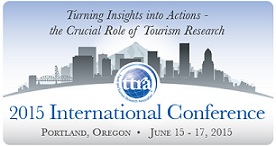Understanding Gateway Community Stakeholders’ Perspectives on Management Actions for Increasing Revenues and Dispersing Visitor Use in North Carolina State Parks
Abstract (150 Words)
Although North Carolina State Parks (NCSP) have recently experienced record-breaking visitation, proportional funding has not followed, leading to maintenance shortfalls and staffing shortages. The increased demand can also induce challenges such as overcrowding and overuse. Overuse combined with staffing shortages can result in the deterioration of the natural environment and park facilities and a decrease in visitor experience quality. NCSP are exploring management actions (i.e., state resident discounts (differential pricing), amenity pricing, reservation systems, and demand-based pricing) as tools to increase revenue and disperse use. However, altering fee structures or introducing nonfee reservation systems may impact park user behavior, including visitor displacement. This can affect gateway community stakeholders since many, particularly those in the tourism industry, rely on state park visitors to generate revenue. However, the full scope of impacts these management actions may have on gateway community stakeholders is unknown since limited literature exists on the subject. Therefore, before implementing new management actions, it is crucial for NCSP to identify and consider the economic, environmental, and social effects these actions may have on gateway community stakeholders. Utilizing Weber’s theory of formal and substantive rationality (WTFSR) coupled with the triple bottom line (economic, environmental, and social impacts), semi-structured interviews were conducted with gateway community stakeholders to understand their preferred management strategies, motivations for those preferences, and perceived impacts of management actions in NCSP.
Understanding Gateway Community Stakeholders’ Perspectives on Management Actions for Increasing Revenues and Dispersing Visitor Use in North Carolina State Parks
Although North Carolina State Parks (NCSP) have recently experienced record-breaking visitation, proportional funding has not followed, leading to maintenance shortfalls and staffing shortages. The increased demand can also induce challenges such as overcrowding and overuse. Overuse combined with staffing shortages can result in the deterioration of the natural environment and park facilities and a decrease in visitor experience quality. NCSP are exploring management actions (i.e., state resident discounts (differential pricing), amenity pricing, reservation systems, and demand-based pricing) as tools to increase revenue and disperse use. However, altering fee structures or introducing nonfee reservation systems may impact park user behavior, including visitor displacement. This can affect gateway community stakeholders since many, particularly those in the tourism industry, rely on state park visitors to generate revenue. However, the full scope of impacts these management actions may have on gateway community stakeholders is unknown since limited literature exists on the subject. Therefore, before implementing new management actions, it is crucial for NCSP to identify and consider the economic, environmental, and social effects these actions may have on gateway community stakeholders. Utilizing Weber’s theory of formal and substantive rationality (WTFSR) coupled with the triple bottom line (economic, environmental, and social impacts), semi-structured interviews were conducted with gateway community stakeholders to understand their preferred management strategies, motivations for those preferences, and perceived impacts of management actions in NCSP.


